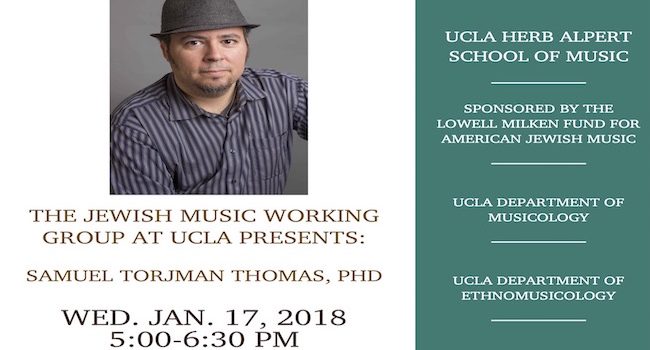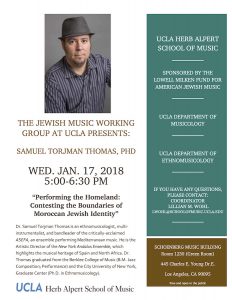JMWG_UCLA
The Jewish Music Working Group at UCLA presents: “Performing the Homeland: Contesting Boundaries of Moroccan Jewish Identity” with Dr. Samuel Torjman Thomas.
The role of music has been central to defining a new diaspora identity within the Jewish community. For Moroccan Jews in one synagogue community in Brooklyn, the performance of liturgical, para-liturgical, and folk repertoires memorializes the homeland and galvanizes the boundaries of a distinctive Jewish ethnic community. The freedom or freedom space (as well as time) produced by the concentrated context of ritualized performance encourages a social experience whereby community members are actively joining up (Turino 2004:7). Musical expression successfully transmits emblems of identity – through icons and indices (ibid.:13) – precisely because the concentrated setting of ritual demands group consciousness.
Different constituencies within the community represent generational and cultural distinctions – immigrants from Morocco, Israel, and France – with similar ideas about what constitutes a Moroccan Jewish identity. Members of these constituencies are employing musical expression as a means for contesting the boundaries of Moroccan Jewish identity, including the juxtaposition of additional Jewish identities (Orthodox Jewish, Israeli, and Sephardic). This paper focuses on approaches to liturgical practice in the synagogue, including communal prayers for Shabbat (Jewish Sabbath) and the Yamim Nora’im (High Holy Days), and includes analyses of approaches to melody, vocal and rhythmic aesthetics, learning practices, leadership methods, and interactions between community members.


